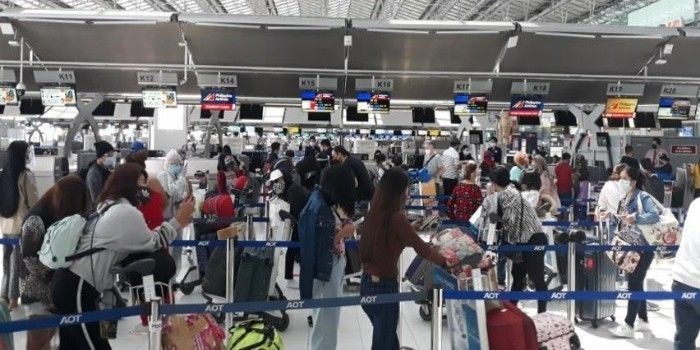Strict health protocols should remain under MGCQ, senator says

MANILA, Philippines — Strict implementation of the minimum health protocols should remain in Metro Manila and in all areas placed under general community quarantine should President Rodrigo Duterte decide on a nationwide shift to modified general community quarantine by March, a senator said.
President Rodrigo Duterte is set to decide on new quarantine status on Monday evening. The Metro Manila Council and the government’s pandemic task force and economic managers have all voted to recommend further easing restrictions to modified general community quarantine, the loosest quarantine designation possible.
In a statement issued Monday morning, Sen. Win Gatchalian argued that the economy was safe to open since local government units are already handling the pandemic better than they did at the onset of the coronavirus pandemic, with the emergence of testing centers and software applications for contact tracing in their localities.
"If you ask me, I agree that we should shift to MGCQ. We're already capable and we know what to do when people get sick. We're already used to it," Gatchalian said.
Healthcare collectives have already warned against such a shift. Vice President Leni Robredo also opposed a possible shift to MGCQ on her radio show Sunday, citing the added risks of coronavirus transmission.
This comes a day after the Department of Health confirmed Sunday 18 more cases of the B.1.1.7 coronavirus variant in the Philippines, bringing the total B.1.1.7 variant cases in the country to 62 since it was first recorded in the country on January 7.
As of the health department's latest update Sunday afternoon, exactly 561,169 coronavirus cases have been recorded in the country since the pathogen first emerged over a year ago.
RELATED: Philippines can't risk full shift to MGCQ by March, OCTA member warns
It has been 342 days since community quarantines were first imposed. The Philippines is still under the world's longest quarantine.
"The most important thing here in case we go to MGCQ is to continue social distancing, wearing face masks and face shields. That cannot be removed. But our economy can be opened slowly because there is only one solution for it to recover - opening it so that many of our countrymen can work. But we can not be surprised. So this MGCQ from 50% let's do 70% and let's see what the impact is," Gatchalian added.
The OCTA Research Group earlier warned that a shift to MGCQ — the IATF's loosest quarantine designation — would trigger yet another surge in coronavirus cases.
The research group made the same warning in May, saying that a premature return to GCQ could add some 24,000 cases and 1,700 deaths by June — a prediction that, for the most part, was not incorrect months later, after the IATF went ahead with its GCQ classification anyway.
— Franco Luna
- Latest
- Trending


































